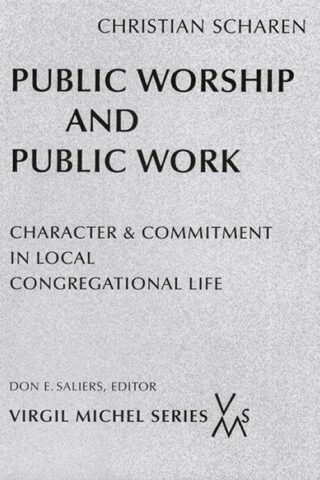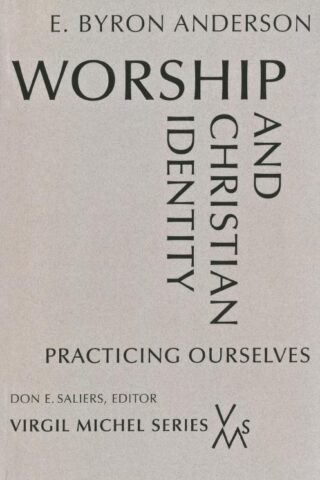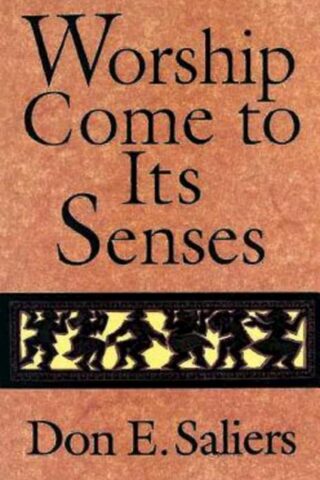Don Saliers
Showing all 3 resultsSorted by latest
-
Public Worship And Public Work
$34.95Add to cartIn a time of increasing cultural pluralism and vast religious restructuring in the United States, Christian social ethics must take account of how values and commitments shape Christian communities. In this book Christian Scharen examines theological claims about the relationship of worship of three vibrant congregations. This book moves beyond two caricatures of the relationship between worship and social ethics. Rather than resolute portrayals of the Church as a reflection of its culture and context, and casual accounts of the Church’s liturgy forming a Christian witness over and against culture, this book lifts up congregational identity as an area of dynamic interaction between worship, social ethics, and culture.
-
Worship And Christian Identity
$24.95Add to cartWorship and Christian Identity argues that sacramental and liturgical practices are the central means by which a church shapes the faith, character, and consciousness of its members. Consequently, for any church to set aside such practices as outdated or irrelevant is to set aside the means by which the church nurtures and sustains its theological identity. From this perspective, Anderson explores the following questions: What is the relationship between worship and belief? What is the relationship between corporate worship and the formation of Christian persons and communities? What is the relationship between worship and our knowledge of ourselves, our world, and God? How might our attention to the reform and renewal of worship and sacramental practice provide a framework for theological, evangelical, and sacramental renewal?
Questions of sacramental practice, inclusive or transformative language, and the renewal of congregational hymnody have been largely displaced by marketing questions and conflicts between “traditional” and “contemporary” worship. The hour of worship is subdivided now into increasingly specialized “target audiences” of singles, seekers, boomers, and “X-ers” with worship carefully packaged as “traditional” or “contemporary.” What at various points has been understood as a “means of grace” is now seen primarily as a “means of numerical growth.”Missing in the conflict between “traditional” and “contemporary” worship is significant discussion of what is at stake for the identity of Christian persons and communities in the shape and practice of worship. Perhaps more surprising, discussion of the theological shape and practice of worship also has been absent in discussions concerning theological standards. These absences suggest that for many in the church today, worship is a means for expressing a community’s belief but has little to do with the shape and character of that belief.
The assumption that worship is only or primarily a pragmatic means for expressing a community’s belief stands in sharp contrast to the Christian tradition. This assumption also contrasts with the insights provided by recent work in ritual studies, psychology, and faith development.
Worship and Christian Identity is an important book for faculty and students in seminary and graduate programs in liturgical studies and religious education, particularly those interested in the relationships between liturgical studies and practical theology, ritual st
-
Worship Come To Its Senses
$20.99Add to cartWhat makes Christian worship both true and relevant to ever-changing human circumstances? How can our gathering about the Scriptures, the Table of the Lord, and the waters of baptism shape and express authentic Christian faith in the world of everyday life? In this book, Don Saliers finds a fresh way of answering these questions by exploring four “senses” of God: awe, delight, truth, and hope. Why are wonderment, surprise, truthfulness, and expectancy so often missing or diminished in Christian liturgy today, whether Protestant or Roman Catholic, “high church” or “low church”, “traditional” or “contemporary”? These are essential qualities of both worship and life. Saliers contends that we are still restless for communion with God, and suggests how these essentials may be rediscovered by every worshiping congregation. At stake are the means of grace received from Christ, attested to in the Scriptures and shown in every faithful worshiping assembly.



